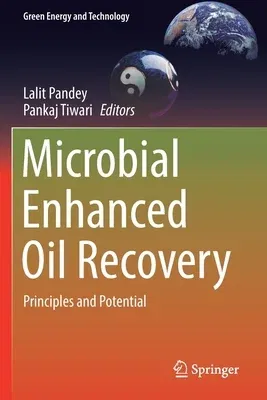Part I: Reservoir Production oil systems
Chapter 1: Physiochemical properties of reservoirs
Chapter 2: Interfacial properties of crude oils
Chapter 3: Oil production mechanisms
Chapter 4: Secondary oil recovery processes
Chapter 5: Tertiary oil recovery processes
Part I: In-situ MEOR
Chapter 1: Isolation and characterization of indigenous microbial
community
Chapter 2: Screening of extremophiles
Chapter 3: Design of consortium to produce the desired metabolites
Chapter 4: Effect of reservoir environmental conditions and inherent
microorganisms
Chapter 5: Recent case studies of In-situ MEOR
Part II: Ex-situ MEOR
Chapter 1: Screening of microbes based on surface active properties
Chapter 2: Identification of various metabolites like gases, biopolymers
and biosurfactants
Chapter 3: Optimization of culture conditions for the production of
biosurfactants
Chapter 4: Suitability of the produced biosurfactants for EOR
applications
Chapter 5: Application of biosurfactants for MEOR applications
Chapter 6: Recent case studies of Ex-situ MEOR
Part III: Integration of Chemical and Microbial EOR
Chapter 1: Optimum formulation of slug using chemicals
Chapter 2: Interfacial properties of chemical surfactants and
biosurfactants
Chapter 3: Core flooding studies using alkali-surfactant-polymer systems
Chapter 4: CO2 enhanced oil recovery
Chapter 5: Core flooding studies using biosurfactants systems
Chapter 6: Limitations and Future perspectives

